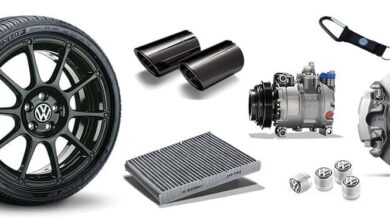Powering the Future: Strategies for Efficient Server Room Management

In the rapidly advancing digital age, server rooms have become the backbone of countless businesses and organisations, supporting their daily operations and ensuring seamless connectivity. With the increasing demand for data storage and processing capabilities, efficient server room management has emerged as a crucial aspect for companies looking to power the future. Explore a range of strategies and best practices that can be employed to optimise server room operations, minimise energy consumption, and enhance overall efficiency. By implementing these strategies, businesses can not only harness the full potential of their server rooms but also pave the way for a sustainable and technologically advanced future.
Adapting to Needs: How Modular UPS Systems Provide Scalable Solutions
Modular UPS (uninterruptible power supply) systems have emerged as a scalable solution to the growing power demands of server rooms and data centres. These systems provide the flexibility to add or remove power capacity as needed, allowing businesses to adapt to changing requirements easily. With the rapid advancement of technology and the increasing demand for data storage and processing capabilities, having a scalable power solution is essential for ensuring seamless connectivity and uninterrupted operations.
Modular UPS systems offer several advantages when meeting growing power demands. Firstly, their modular design allows for easy and quick expansion. As businesses grow and their power requirements increase, additional modules can be added to the existing system, eliminating the need for a complete overhaul. This not only saves time and resources but also minimises disruption to operations.
Modular UPS systems provide redundancy and fault tolerance. By distributing power across multiple modules, these systems ensure that no single point of failure can bring down the entire server room or data centre. Should one module fail, the load can be easily transferred to the remaining modules, keeping operations running smoothly. This level of reliability and resilience is crucial for businesses that cannot afford downtime or data loss.
Overall, modular UPS systems offer a scalable and flexible solution to the growing power demands of server rooms and data centres. By providing easy expansion, redundancy, and fault tolerance, these systems enable businesses to adapt to changing requirements while ensuring uninterrupted operations and seamless connectivity.
Energy Efficiency Practices
Optimising energy efficiency in server rooms has become essential for businesses and organisations in the rapidly advancing digital age. Companies need to adopt strategies for efficient server room management to power the future. These strategies aim to minimise energy consumption and enhance overall efficiency. By implementing these practices, businesses can reduce their carbon footprint and save on operational costs.
One important energy efficiency practice is virtualisation. Businesses can significantly reduce their energy consumption by consolidating multiple servers into one physical server. Virtualisation allows for better utilisation of server resources, reducing the need for additional hardware and consequently lowering energy requirements.
Another effective practice is implementing cooling systems specifically designed for server rooms. Traditional cooling systems often lead to energy wastage as they cool the entire data centre instead of just the servers. Precision cooling technologies and airflow management techniques can help optimise cooling efficiency, reducing the energy needed for cooling operations.
Adopting energy-efficient practices in server room management is crucial in today’s digital-driven world. By implementing virtualisation and precision cooling strategies, businesses can enhance their operational efficiency, reduce energy consumption, and contribute to a more sustainable future.
Preventive Maintenance
Preventive maintenance is an essential aspect of efficient server room management. It involves regularly scheduled inspections, cleaning, and servicing of the equipment to prevent any potential issues from arising. This proactive approach helps to identify and address problems before they can cause system failures or downtime. Preventive maintenance includes checking for and replacing worn-out components, cleaning dust and debris from cooling systems, and testing backup power supplies.
By implementing a preventive maintenance program, businesses can experience several benefits. First and foremost, it helps to minimise the risk of equipment failure, which can result in costly downtime and disruptions to operations. Regular maintenance ensures the equipment runs at peak performance, maximising its lifespan and efficiency. By addressing small issues early on, businesses can avoid the need for extensive repairs or even the replacement of expensive equipment. Furthermore, preventive maintenance can save energy by ensuring that cooling systems and other equipment run optimally, reducing unnecessary power consumption.
In conclusion, preventive maintenance is a crucial strategy for efficient server room management. By adopting a proactive approach, businesses can prevent equipment failures, minimise downtime, and prolong the lifespan of their equipment. Regular inspections and servicing enhance overall efficiency and contribute to energy savings. A preventive maintenance program is essential for powering the future and ensuring seamless connectivity in the digital age.





